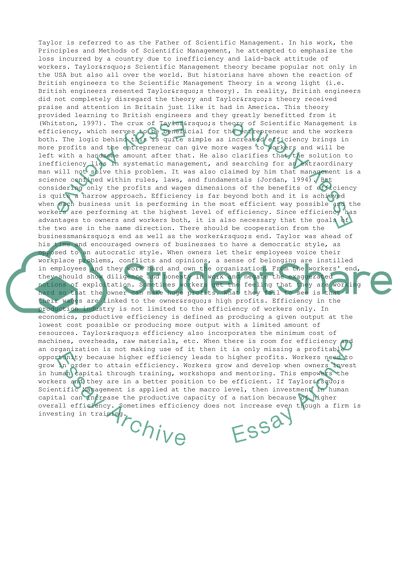Cite this document
(Taylors Scientific Management Theory and McClellands Needs Theory Essay, n.d.)
Taylors Scientific Management Theory and McClellands Needs Theory Essay. Retrieved from https://studentshare.org/management/1437556-contemporary-management-issues
Taylors Scientific Management Theory and McClellands Needs Theory Essay. Retrieved from https://studentshare.org/management/1437556-contemporary-management-issues
(Taylors Scientific Management Theory and McClellands Needs Theory Essay)
Taylors Scientific Management Theory and McClellands Needs Theory Essay. https://studentshare.org/management/1437556-contemporary-management-issues.
Taylors Scientific Management Theory and McClellands Needs Theory Essay. https://studentshare.org/management/1437556-contemporary-management-issues.
“Taylors Scientific Management Theory and McClellands Needs Theory Essay”, n.d. https://studentshare.org/management/1437556-contemporary-management-issues.


